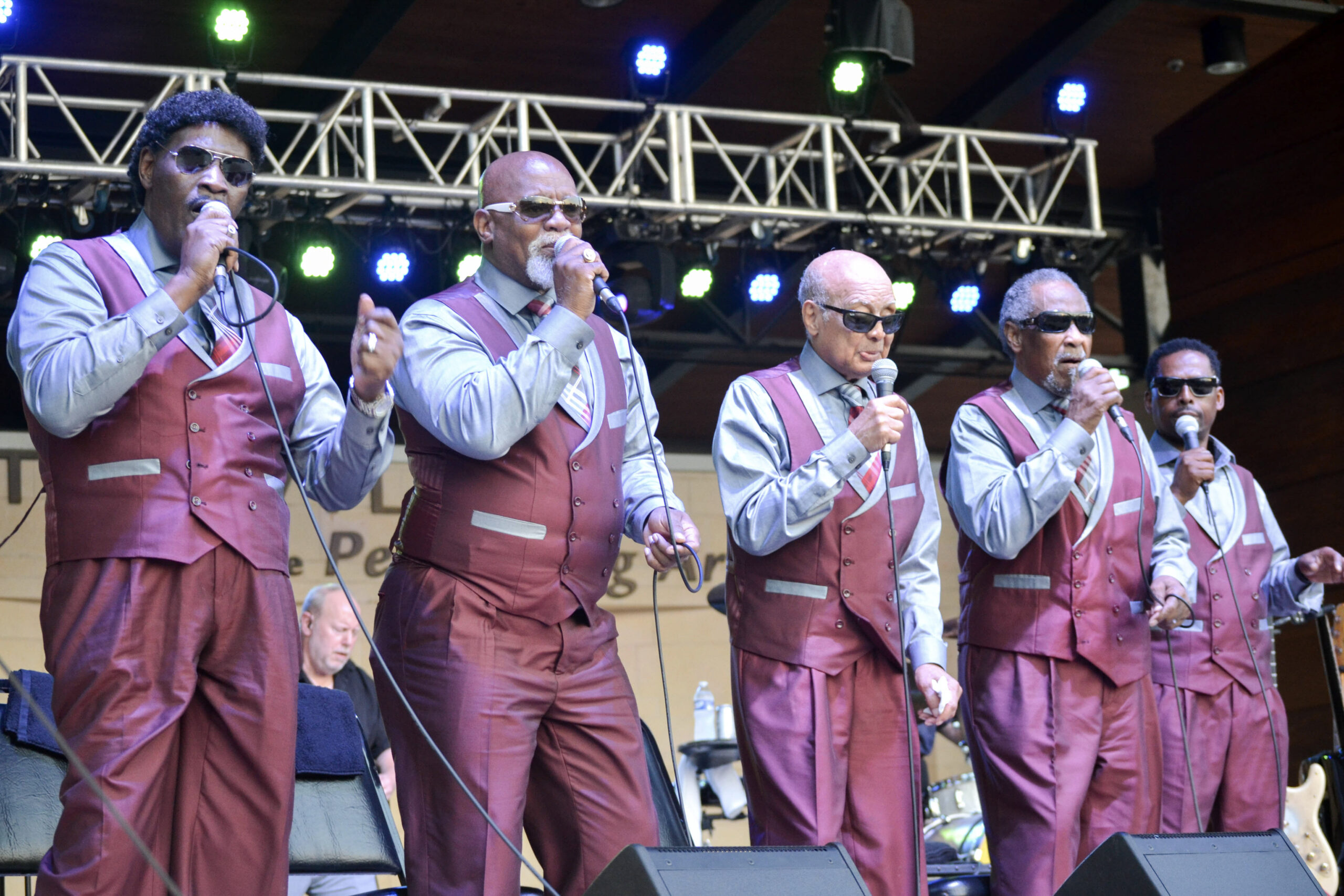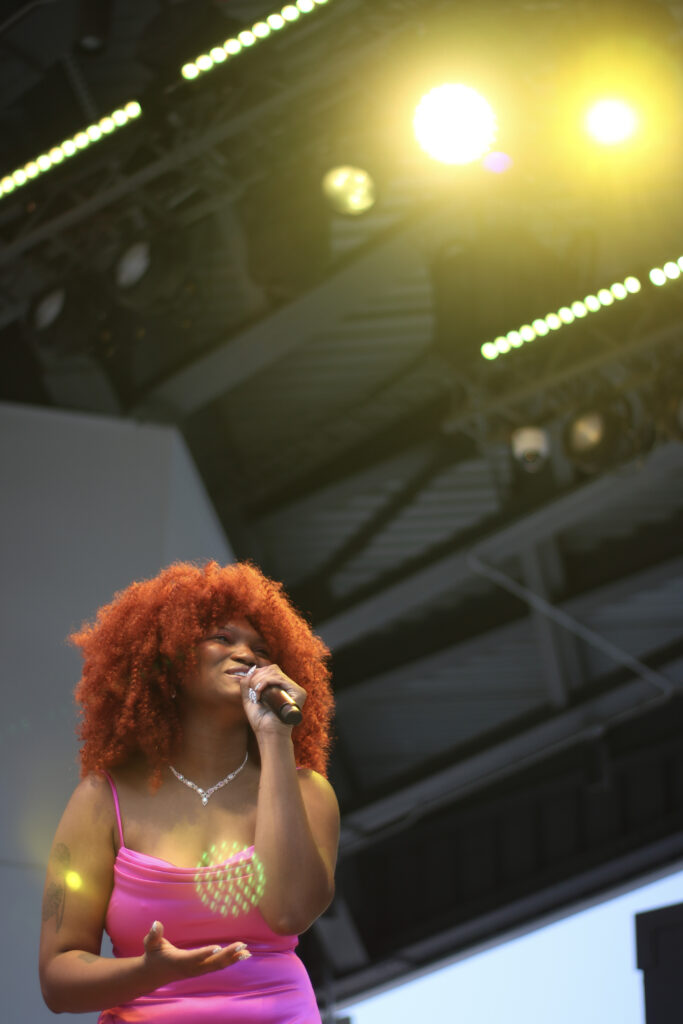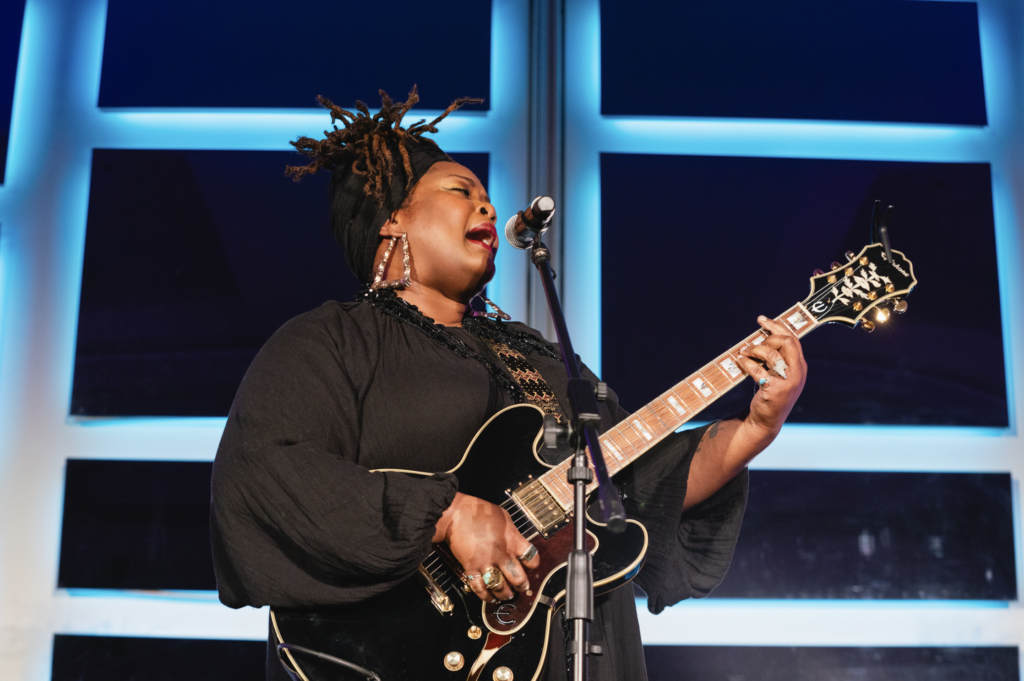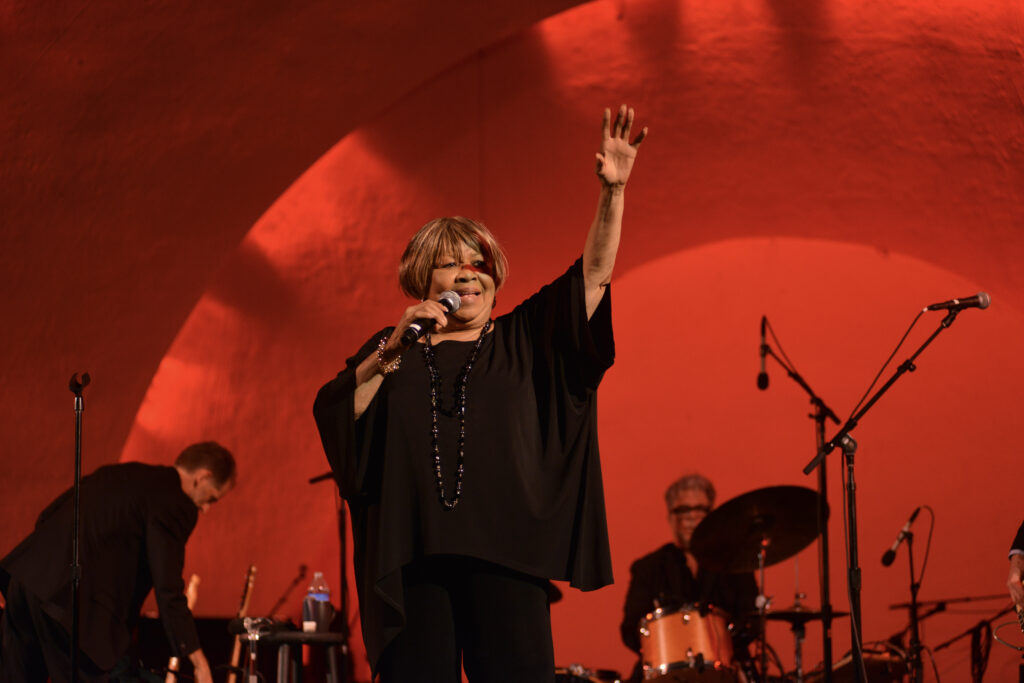
February is a time for celebrating Black American history and all the ways African Americans across generations have contributed to American society and culture. Such has been the case since 1976, the year of the first official Black History Month. Every year since then, the Association for the Study of African American Life and History has selected a theme for Black History Month, and at the Levitt Foundation, we’re particularly excited about this year’s: African Americans and the Arts.
Whether through photography or film, music or dance, poetry or fiction, Black American creatives have used art as both vehicles of creative expression and social change. The Levitt Foundation abides by a similar ethos—we believe that by supporting changemakers and nonprofits to bring free live music to public spaces across America, musical artists performing on Levitt stages can help bridge divides, strengthen communities, and inspire hope and joy amongst Americans of all races, generations, and backgrounds. Today, we celebrate four brilliant Black American musicians across generations who are not only building community through music but are using their creative platforms to ignite social change for a more equitable and inclusive world.
Jordan Occasionally

Jordan Occasionally energized Levitt Pavilion Dayton audiences this past summer with their upbeat R&B set.
Born and raised in the birthplace of numerous Black American-founded genres (like gospel, rhythm and blues, and rock ‘n’ roll) nonbinary singer, songwriter, guitarist, and community activist Jordan Occasionally creates skillfully warm, silky disco-indebted R&B tunes. So it’s no wonder their July appearance on the Levitt Pavilion Dayton stage last summer brought audiences of all walks of life to their feet to groove to Jordan’s crystalline vocals as the artist performed original music from their debut album Indigo (2021), along with unique covers of universally beloved disco and R&B hits by the likes of Michael Jackson and Luther Vandross.
Music isn’t Jordan Occasionally’s only love. Real name Jordan “JD” Dodson, the young multihyphenate considers themself equal parts artist and activist. In 2021, the Public Relations Society of America Memphis awarded Jordan the “Communicator of the Year” award for protests they organized in support of the Black Lives Matter movement, specifically focusing on justice for Black women and Black transgender lives in 2020. Jordan hasn’t slowed down since: In recent years, the Memphis talent has launched The Dodson Way, a mutual aid collaborative working to bring food and other necessities to folks without housing in the Memphis community.
Blind Boys of Alabama
Blind Boys of Alabama are legends of traditional Black gospel. Just ask anyone who has seen the five-time GRAMMY-winning act—often referred to by critics as one of the greatest American roots music groups of all time—get down on one of the numerous Levitt stages they’ve rocked throughout the years. Before then, the Black, elder Americana icons were already on a roll, having performed in 2016 at Memphis’ Overton Park Shell (then called Levitt Memphis Shell) and Bethlehem’s Levitt Pavilion SteelStacks, bringing soulful joy to audiences of all races, ethnicities, and cultures.
Their success is a particularly notable feat, considering that the band was established in 1939, a time when Jim Crow laws prohibited Black and white Americans from savoring the joy of live music together in the South’s public spaces. During their heyday, the band was a staple of the Civil Rights Movement soundtrack (they even performed at benefits for Dr. Martin Luther King, Jr. in the ‘60s). As a group of mostly visually impaired musicians, they were also beacons of disability representation decades before disability rights were recognized by the federal government. Fast forward to today: fostering safe, inclusive, and welcoming public spaces is an endeavor the Levitt Foundation pursues with steadfast commitment—and gratitude for artists like Blind Boys of Alabama, who fought for what was right during their heyday, now allowing us to carry on their legacy of social change by cultivating unity across people of all backgrounds through music.
Kyshona

Singer-songwriter Kyshona recently performed her warm, emotive folk tunes for the Levitt network at the 2024 Levitt National Convening in Los Angeles.
Kyshona is a force to reckon with, and anyone who saw her jam out on stage at the 2024 Levitt National Convening would concur! Blending roots, rock, R&B, and folk music with spoken-word-style lyricism, Kyshona Armstrong commands a room (or lawn) unlike any other with just her voice and bluesy guitar—a sonic combination that is guaranteed to make you feel more seen, heard, and healed after you experience it.
Some would say it’s almost like she was a music therapist in a past life… because she was. While the Nashville-based singer-songwriter has performed on various Levitt stages—including Levitt Pavilion Dayton and Levitt Pavilion SteelStacks, along with Delaware’s Levitt AMP Music Series Wilmington—Kyshona got her career start as a music therapist, where she collaborated to write songs with adults and youth experiencing homelessness, incarceration, trauma, and isolation. Her time working as a music therapist not only inspired her to start her artist project (resulting in a bevy of original music, including her new album Legacy, out this April) but founding a community arts nonprofit as well. On a mission to connect communities to promote healing through songwriting, Kyshona’s Your Song is an organization that serves vulnerable communities through therapeutic songwriting programs.
Mavis Staples

Levitt Shell Memphis audiences rock ’n’ rolled the night away with Americana icon Mavis Staples in 2013 (pictured) and 2016.
You’d be hard-pressed to have a conversation about art activism and Black history without a mention of Mavis Staples, hailed by NPR as one of America’s defining voices of social change. Her curriculum vitae measures up to that title, indeed: Staples, who has won three GRAMMYs and the GRAMMY Lifetime Achievement Award, has marched with Dr. Martin Luther King, Jr., performed for President John F. Kennedy, and even rock ‘n’ rolled at President Barack Obama’s White House.
Long before becoming a household name as an adult, the now 84-year-old Staples was already a changemaker. As a teenager in her family’s celebrated gospel troupe, the Staples Singers, she’d write protest songs inspired by her experience with segregation and racism firsthand—not to mention she was also a Freedom Rider (advocating for racially integrated bus rides throughout the South) and staunch advocate for Black Americans’ voting rights. In both 2013 and 2016, the legendary musical activist returned to the South to play at Levitt Shell Memphis (now called Overton Park Shell), bringing folks of all ethnicities and generations together for a dynamic blend of gospel, soul, and R&B—her music serving as a powerful reminder of how far our country has come, and how far we have yet to go.
This February and all year round, the Levitt network celebrates Black American musicians who are creating change through their artistry and talents. As the 2024 Levitt season swiftly approaches, we’re looking forward to celebrating more Black American singers, songwriters, and instrumentalists on Levitt stages across the country as they build community through music. Stay tuned!
